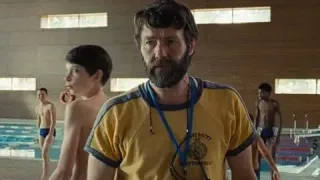September 19, 2019
'Deeply Sorry' Trudeau Begs Forgiveness for Brownface Photo
Rob Gillies READ TIME: 4 MIN.
Canadian leader Justin Trudeau's campaign moved to contain a growing scandal Thursday, following the publication of a yearbook photo showing him in brownface makeup at a 2001 costume party. The prime minister apologized and begged Canadians to forgive him.
Time magazine published the photo on Wednesday, saying it was taken from the yearbook from the West Point Grey Academy, a private school in British Columbia where Trudeau worked as a teacher before entering politics. It depicts the then 29-year-old Trudeau wearing a turban and robe, with dark makeup on his hands, face and neck.
Trudeau, who launched his reelection campaign exactly one week ago, said he should have known better.
"I'm pissed off at myself, I'm disappointed in myself," Trudeau told reporters traveling with him on his campaign plane.
The Canadian prime minister is but the latest politician to face scrutiny over racially insensitive photos and actions from their younger days. Earlier this year, Virginia Gov. Ralph Northam faced intense pressure to resign after a racist picture surfaced from his 1984 medical school yearbook page. He denied being in the picture but admitted wearing blackface as a young man while portraying Michael Jackson at a dance party in the 1980s. Since then, Virginia Attorney General Mark Herring has acknowledged wearing blackface in college, and Alabama Gov. Kay Ivey has publicly apologized for donning blackface during a college skit more than 50 years ago. None has resigned.
The photo of Trudeau was taken at the school's annual dinner, which had an "Arabian Nights" theme that year, Trudeau said, adding that he was dressed as a character from "Aladdin." The prime minister said it was not the first time he has painted his face; once, he said, he performed a version of Harry Belafonte's "Banana Boat Song (Day-O)" during a talent show.
"I should have known better then but I didn't, and I am deeply sorry for it," Trudeau said. "I'm going to ask Canadians to forgive me for what I did. I shouldn't have done that. I take responsibility for it. It was a dumb thing to do."
He said he has always been more enthusiastic about costumes than is "sometimes appropriate."
"These are the situations I regret deeply," Trudeau added.
The prime minister, who champions diversity and multiculturalism, said he didn't consider it racist at the time but said society knows better now.
The photo's publication could spell more trouble for Trudeau, who polls say is facing a serious challenge from Conservative leader Andrew Scheer.
Trudeau has been admired by liberals around the world for his progressive policies in the Trump era, with Canada accepting more refugees than the United States. His Liberal government has also strongly advocated free trade and legalized cannabis nationwide.
But the 47-year-old son of late Prime Minister Pierre Trudeau was already vulnerable following one of the biggest scandals in Canadian political history, which arose when Trudeau's former attorney general said he improperly pressured her to halt the criminal prosecution of a company in Quebec. Trudeau has said he was standing up for jobs, but the scandal rocked the government and led to multiple resignations earlier this year, causing a drop in the leader's poll ratings.
Following the release of the brownface photo, Trudeau said he would talk to his kids in the morning about taking responsibility.
His quick apology did not stem the criticism from political opponents, who took the prime minister to task for what they said was troubling behavior.
"It is insulting. Any time we hear examples of brownface or blackface it's making a mockery of someone for what they live, for what their lived experiences are. I think he has to answer for it," said Leftist New Democrat leader Jagmeet Singh, a Sikh who wears a turban and the first visible minority to lead a national party.
Scheer, the opposition Conservative leader, said brownface was racist in 2001 and is racist in 2019.
"What Canadians saw this evening was someone with a complete lack of judgment and integrity and someone who is not fit to govern this country," Scheer said.
Robert Bothwell, a professor of Canadian history and international relations at the University of Toronto, said he was "gobsmacked" at the development and wondered how it would land in Parliament and with voters.
"We'll just have to see how the party reacts," he said. "I'm very curious to know how Liberal members of Parliament that are black will react."
He added: "The case has never been conclusively made that Justin is a person of substance. I mean he may well be. But that impression is just not out there."
How the scandal will affect Trudeau's campaign remains in question. Nelson Wiseman, a political science professor at the University of Toronto, said he didn't think the photo's release would cause people to vote differently. Wiseman said race and blackface play a much bigger role in U.S. politics than in Canada.
"I don't think this will swing the vote, although the story will get a lot of media play for a couple of days," Wiseman said. "The Liberals may very well lose the election – they almost certainly will not do as well as in 2015 – but this is not the type of scandal that will drive voters to the Conservatives."






